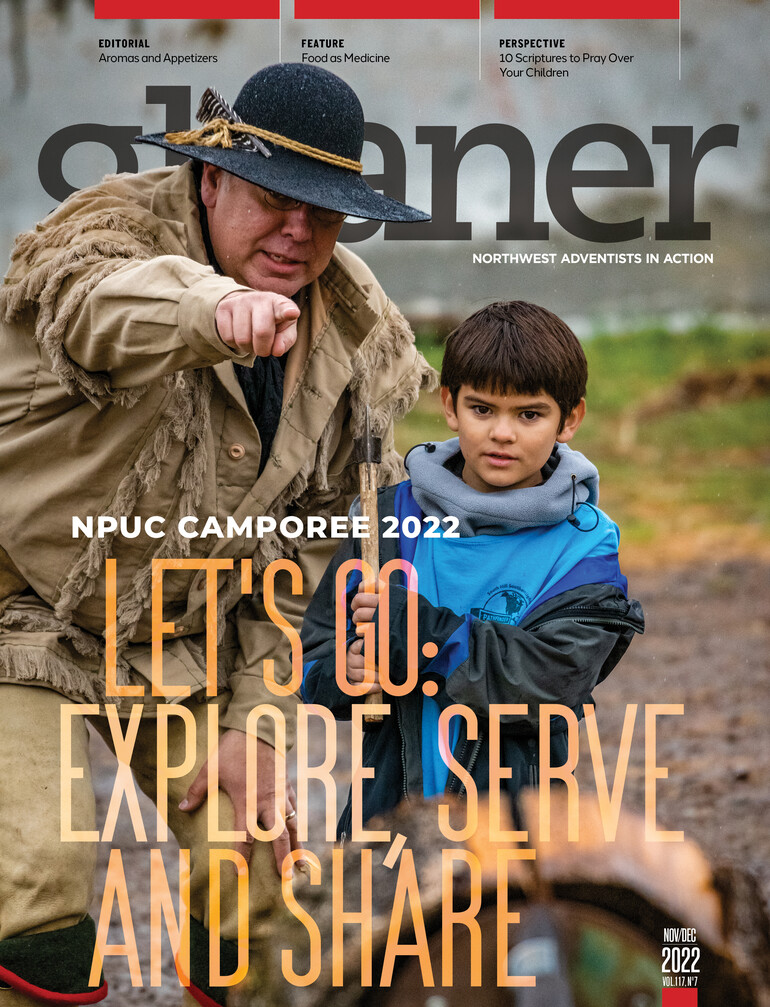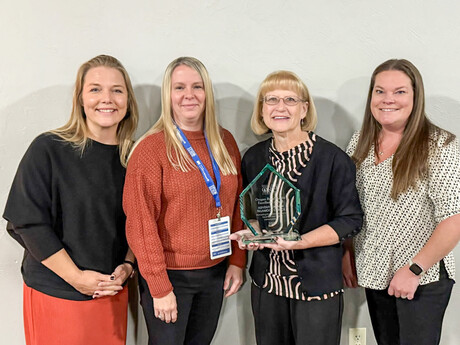You are on a team assessing whether or not to acquire a new community hospital for Adventist Health. What are the questions, conversations and topics that are relevant? How would you decide if acquiring this hospital is a good decision?
Adventist Health is taking steps to ensure the next generation of healthcare business leaders can answer these and other important questions within the context of mission-driven, history-rich Adventist healthcare.
Through a variety of opportunities offered by Adventist Health — including student internships, a leadership residency program and a new college course in healthcare administration — the West Coast-based healthcare system is helping prepare young Adventists for careers in healthcare administration.
The new Introduction to Healthcare Administration class is offered at La Sierra University, Pacific Union College and Walla Walla University. The class provides opportunities for students to soak up personal career insights from Adventist Health leaders and engage in conversation on a variety of healthcare subjects. Each class features a presentation by a different healthcare executive and time for students to ask questions of the presenter. The class is formative and informational, and it can also be used as a job interview.
“Adventist Health is looking for bright, young, mission-driven students to come work for us,” said Alex Bryan, chief mission officer for Adventist Health and co-instructor for the class. “The Introduction to Healthcare Administration class is an opportunity for students to put their name forward and to step up and say, ‘I want to make a difference in the world. I want to use my particular skills to love people who are hurting, to heal people who are sick and to bring hope to people who find they have no hope.’”
Building a pipeline of future healthcare leaders who are aligned with Adventist values is an important strategy for Adventist Health. This class provides students at Adventist colleges and universities on the West Coast with the opportunity to learn about the business side of healthcare and the significance of being a leader for a faith-based healthcare organization.
Topics covered in the class include finance, operations, human resources, marketing, communication, Adventist Health mission, spiritual care in a healthcare setting and more. Twenty-five Adventist Health executives and leaders from across the organization have presented for the class during the last two years.
The interactive class format is supplemented with readings from books and current news articles about healthcare finance, public health policy, issues in human resources and much more. The class also provides an overview of the history of Adventist Health, its roots in the Adventist Church and the unique mission of the company. The course model allows students to gain a better understanding of healthcare administration straight from executive presenters who provide real-world examples.
Bryan and Brendan Collins, co-designer and co-instructor for the class, have planned course content to provide insight, inspiration and opportunity for mission-driven students who know they want to work in healthcare administration, those pursuing the clinical side of healthcare but want to learn about the business of healthcare and for students simply exploring their options and wanting to learn about the foundations of healthcare in the United States.
“The class gives students an inside look into Adventist Health and the American healthcare system as a whole. Students have opportunities to receive career and leadership advice that will last a lifetime,” said Collins.
More than 100 students have taken the course during the past two years with multiple students receiving internships and residencies at Adventist Health after taking the class.
“My favorite part about the class was getting to interact with the executives. Being able to ask them personal firsthand questions is something that is so valuable to my future,” said one student.
Another student said, “This class has given me the opportunity to look into the healthcare administration career field and taught me so much about the structure, variety of jobs available, culture and ministry of Adventist Health.”
“I especially found interest in the Adventist Health executive officers with a legal background. It helped me to realize that there is no singular path and that the future doesn’t necessarily hinge entirely on what a diploma says,” said another student.
John Thomas, dean of the Zapara School of Business at La Sierra University, said, “The class provides a great opportunity for business students to get to know the business of healthcare from the inside while getting acquainted with working healthcare executives. The class is important for our business majors because of how substantial healthcare is in the modern U.S. economy, the longstanding Adventist connection with healthcare and the role of healthcare as an expression of Adventist values.”
“With healthcare comprising almost 20% of the American economy, there is no shortage of roles and career opportunities within the industry,” said Collins. “Our goal is to give every student who takes the course an inside look into our organization and to help them realize there are endless opportunities for careers not just in the clinical space but in healthcare administration as well. More importantly, we want students to recognize that working at Adventist Health is an opportunity to be part of something more than just a day job. It is a calling to the transformational, healing ministry Jesus brought to this Earth 2,000 years ago by inspiring health, wholeness and hope for those in need.”
To learn more about Introduction to Healthcare Administration classes offered at La Sierra University, Pacific Union College and Walla Walla University, visit the websites for each college or university's school of business or email Brendan Collins at collinbm@ah.org.
Topics and presenters for Introduction to Healthcare Administration:
Mission leadership
Alex Bryan, chief mission officer
Hospital leadership
Michelle Fuentes, Adventist Health Sonora president
Health system leadership
Kerry Heinrich, chief executive officer
Blue Zones and community well-being initiatives
Mark Ishikawa, community integration administrative director
Shelly Trumbo, well-being executive
Michaela Collins, Blue Zones project manager
Janelle Ringer, community integration project manager
Human resources
Doris Tetz, human performance executive, talent strategy & total rewards
Leadership and human resources
Joyce Newmyer, chief people officer
Digital innovation and strategy
Jason Wells, chief strategy officer
Financial leadership
John Beaman, chief financial officer
Mission and chaplaincy
Sam Leonor, mission identity & spiritual care executive
Katie Wagner, resident intern chaplain
Diversity, equity, and inclusion, and healthy choices
Dexter Shurney, chief health equity, diversity, and inclusion officer
Philanthropy
Betsy Taylor, chief philanthropy officer
Leadership residency
Tim Olaore, leadership resident & internship programs director
Public affairs
Julia Drefke, public affairs executive
Operations
Todd Hofheins, chief operating officer
Legal issues in healthcare
Meredith Jobe, general counsel









